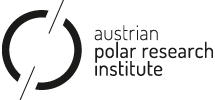Research Focus
The Austrian Polar Research Institute aims at providing fundamental understanding of (a) the evolutionary, genetic, and ecological adaptations of organisms and communities in polar (marine, terrestrial, and ice/snow) environments and (b) the role polar ecosystems play in global biogeochemical cycles and potential feedbacks to climate changes.
One focus is on polar microbiology and biogeochemistry, since the dominant life forms in extreme polar environments are microorganisms. Microorganisms adapt rapidly, comprise the bulk of polar biodiversity, and are actively involved in the cycling of carbon and other elements such as nitrogen and sulfur. Polar regions are most strongly influenced by global change, leading to dramatic shifts in microbial community composition and activity.
Another focus is on the vulnerability of the vast amount of organic carbon stored in arctic permafrost soils. Permafrost soils and sediments harbor about twice as much carbon than the atmosphere; global change, such as increasing temperatures or nitrogen deposition are thus expected to accelerate microbial decomposition of soil carbon, with unknown feedbacks to the climate.


